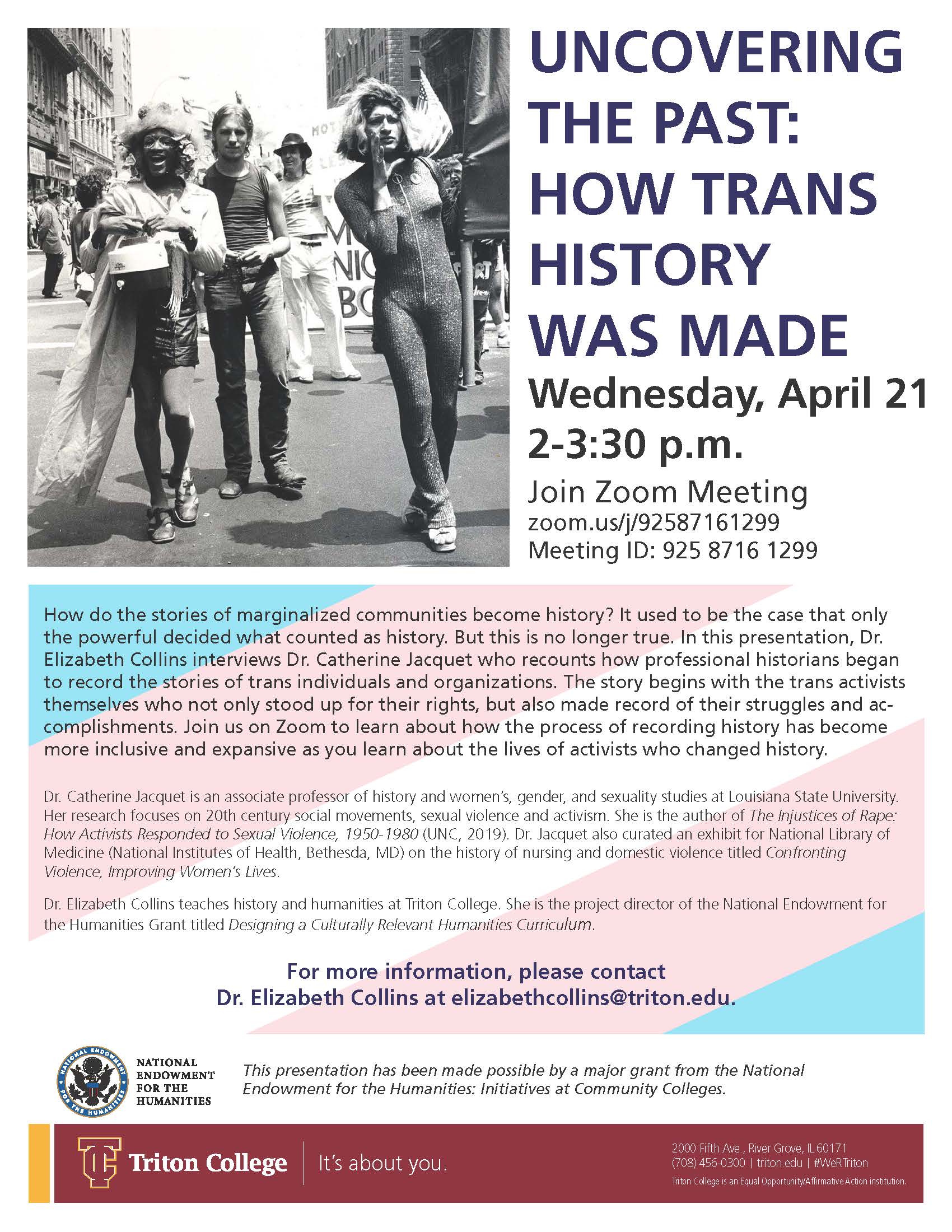April 13, 2021
Uncovering the Past

How trans history was made
How do the stories of marginalized communities become history? It used to be the case that only the powerful decided what counted as history. But this is no longer true.
On Wednesday, April 21, 2-3:30 p.m. Triton College faculty member Elizabeth Collins, Ph.D. interviews Louisiana State University faculty member Catherine Jacquet, Ph.D.
Jacquet will discuss how professional historians began to record the stories of trans individuals and organizations. The story begins with the trans activists themselves who not only stood up for their rights but also made a record of their struggles and accomplishments.
Join the conversation on Zoom to learn about how the process of recording history has become more inclusive and expansive as you learn about the lives of activists who changed history.
Join Zoom Meeting
zoom.us/j/92587161299
Meeting ID: 925 8716 1299
Catherine Jacquet, Ph.D. is an associate professor of history and women’s, gender, and sexuality studies at Louisiana State University. Her research focuses on 20th century social movements, sexual violence and activism. She is the author of The Injustices of Rape: How Activists Responded to Sexual Violence, 1950-1980 (UNC, 2019). Professor Jacquet also curated an exhibit for the National Library of Medicine (National Institutes of Health, Bethesda, MD) on the history of nursing and domestic violence titled Confronting Violence, Improving Women’s Lives.
Elizabeth Collins, Ph.D. teaches history and humanities at Triton College. She is the project director of the National Endowment for the Humanities Grant titled "Designing a Culturally Relevant Humanities Curriculum."
